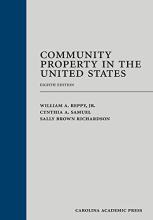Sally Brown Richardson
A.D. Freeman Associate Professor of Civil Law

Biography
Sally Brown Richardson specializes in property law, community property law and comparative private law. Her scholarship and teaching focus on how property and community property doctrines might be modernized to operate more effectively and efficiently given changes in society since their creation. In doing so, she compares how property and community property doctrines operate in both common and civil law jurisdictions, and she considers what the different legal systems might learn from each other to better address modern property issues.
Richardson received the 2015 Felix Frankfurter Award for Distinguished Teaching, Tulane Law School's highest teaching honor. And in 2015-16, she was the Gordon Gamm Faculty Scholar, an award supporting early-career professors.
Her work has been has been published in the American Journal of Comparative Law, University of Houston Law Review, Tennessee Law Review, Tulane Law Review and the Louisiana Law Review. She is the author of the textbook Community Property in the United States (Carolina Academic Press 2015). Her article "Reframing Ameliorative Waste" was selected for the 2015 Yale/Stanford/Harvard Junior Faculty Forum. Richardson also blogs regularly for the PropertyProf Blog.
Richardson serves on the executive board for both the Association of Law, Property and Society and the American Society of Comparative Law’s Younger Comparativist Committee. She is a member of Federal Bar Association New Orleans Chapter board of directors. She also is an active member of the Louisiana State Law Institute, serving on its council and a number of committees, including the Water Law Committee, Persons-Marriage Committee and Tax Sales Committee. Before joining the Tulane Law faculty in 2012, Richardson practiced law at Skadden, Arps, Slate, Meagher & Flom in Washington, D.C. She clerked for Judge W. Eugene Davis on the 5th U.S. Circuit Court of Appeals and before that worked as deputy communications director for then-U.S. Sen. Mary L. Landrieu.
Education
Louisiana State University
Georgetown University
Accomplishments
President’s Award for Excellence in Professional and Graduate Teaching, Tulane University
2019
Articles
The Influence of Justinian on American Common Law Property
2018
The civil law’s impact on American law property may not at first be readily apparent. Civil law property and common law property are structured very differently. How things are classified, be they, for example, movable or immovable, corporeal or incorporeal, is of great import in the civil law; the common law focuses far less on the classification of things. The civil law has a firm, if not restrictive, concept of what constitutes a property right, whereas in the common law, property rights are much more fluid. The civil law has a finite set of rights that are included in ownership, namely the rights of usus, fructus, and abusus. The bundle of sticks that may make up an individual’s interest in property in the common law is, it seems, ever morphing. The very notion that an individual can own property is theoretically foreign to the common law, whereas ownership is a bedrock of civil law property.
Civil law property and common law property are unquestionably very different, and yet, they are also very similar. Doctrinally, much of common law property stems directly from the civil law and, specifically, from the father of the civil law himself, Justinian. This essay explores how Justinian’s work influenced a number of common law property doctrines including the rule of capture, riparian rights, servitudes, and the doctrine of waste, to name a few.
Privacy and Spouses in Louisiana: The Community Property Conundrum and Proposals for Reform
2017
Since Warren and Brandeis first expounded on the right of privacy in 1890, individuals' legal ability to protect themselves from unreasonable intrusions upon their seclusion has grown through both jurisprudence and statutes. While privacy rights on a national level have developed, community property laws in Louisiana have not evolved to ensure similar protections for intra-spousal privacy rights. One reason Louisiana law has not progressed in this respect is because privacy rights create a conundrum for community property: how can spouses share property with one another as part of the community, yet still retain a right of privacy from one another in that property?
Community property ownership, management, and debt rules cause consternation for Louisiana courts considering an individual spouse's right of privacy. Two Louisiana courts have held that community property rules trump a spouse's right of privacy. Thus, while intra-spousal privacy rights have developed on a national level, an individual spouse's privacy rights in Louisiana have remained stagnant. This Article seeks to provide guidance to the Louisiana legislature and courts as to how to amend current community property law so as to give spouses a reasonable right of privacy from one another in community property.
Chinese Takings: Book Review of Chuanhui Wang, the Constitutional Protection of Private Property in China: Historical Evolution and Comparative Research (Cambridge University Press, 2016)
2017
As China reemerges as a global economic power, the desire to invest and acquire property rights in China grows. Such acquisitions give pause to foreign investors accustomed to democratic protections against the state taking private property. Given that the Communist Party of China (CPC) holds a monopoly on political power, expropriation is an issue of international interest.
Historically, protections for private property in China were limited, if not nonexistent, but recently China has begun to strengthen them. It is with this emergence that Chuanhui Wang produces his comparative study of takings law in his book The Constitutional Protection of Private Property in China: Historical Evolution and Comparative Research (Cambridge University Press, 2016). Wang examines whether and how China has historically protected private property. He then compares takings law in three countries: the United States, Germany, and India. Wang uses these case studies to evaluate the current state of Chinese law and offer suggestions for how China can better protect against government takings.

